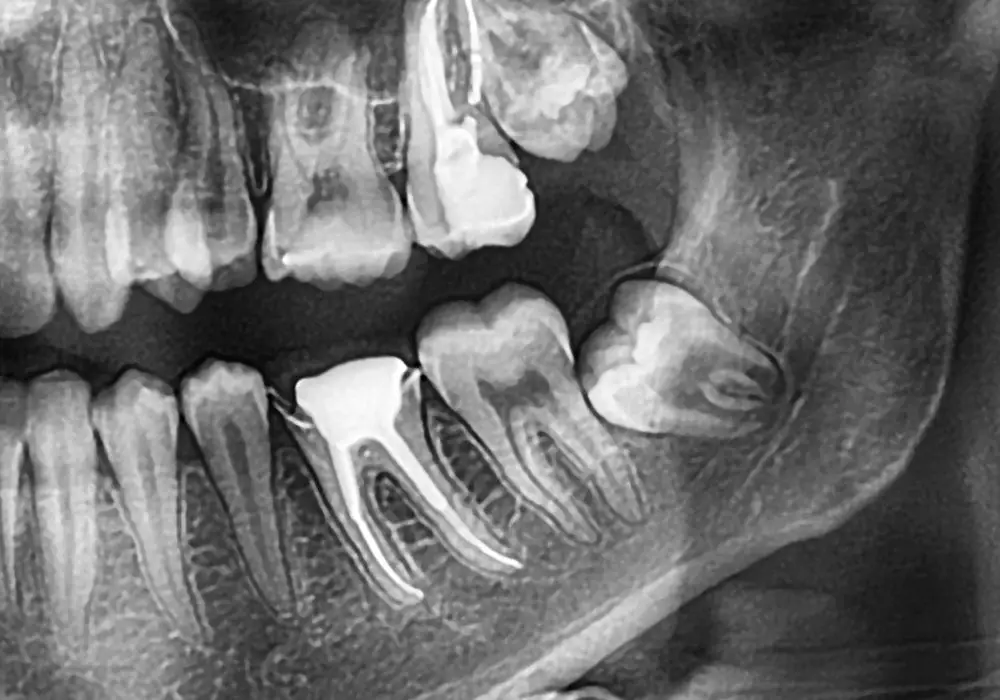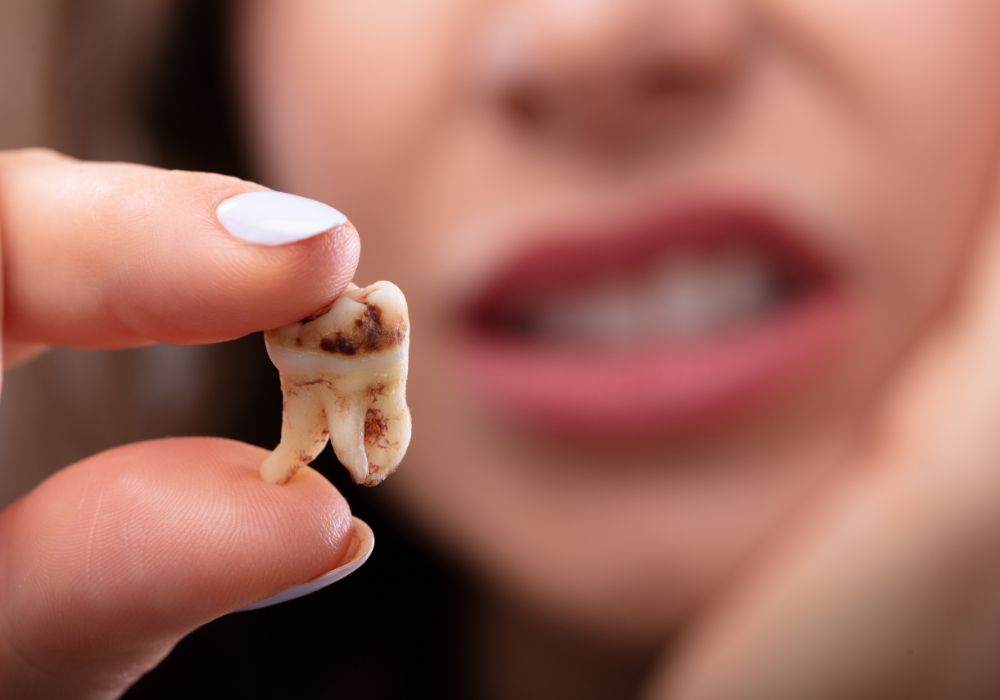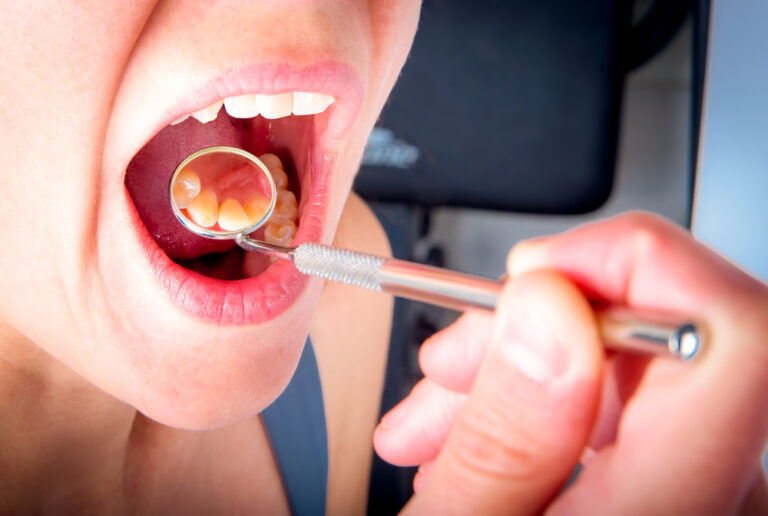If you’re experiencing discomfort in the back of your mouth, it could be a sign that your wisdom teeth are growing in. While some people may not experience any discomfort, others may experience pain, swelling, and other symptoms as their wisdom teeth emerge. In this article, we’ll explore whether wisdom teeth growing in can cause discomfort and what you can do about it.
Wisdom teeth, also known as third molars, typically start to emerge in your late teens or early twenties. For some people, their wisdom teeth may grow in without any issues. However, for others, their wisdom teeth may become impacted, meaning they don’t have enough room to grow in properly. This can lead to a range of symptoms, including pain, swelling, and even infection. If you’re experiencing discomfort in the back of your mouth, it’s important to see your dentist to determine if your wisdom teeth are the cause.
Understanding Wisdom Teeth
Wisdom teeth are the last set of molars to emerge in the back of your mouth. They typically grow in between the ages of 17 and 25. Most people have four wisdom teeth, but some may have fewer or none at all.
While wisdom teeth can be useful for chewing tough foods, they can also cause discomfort and other dental problems. This is because they often don’t have enough space to grow in properly, which can cause them to become impacted.
Impacted wisdom teeth can cause a variety of issues, including pain, infection, and damage to nearby teeth and jawbone. They can also be difficult to clean, which makes them more prone to tooth decay and gum disease.
In some cases, your dentist may recommend removing your wisdom teeth to prevent these problems from occurring. However, not everyone needs to have their wisdom teeth removed, and the decision to do so should be made on a case-by-case basis.
If you’re experiencing discomfort or other issues related to your wisdom teeth, it’s important to talk to your dentist as soon as possible. They can help you determine the best course of action for your particular situation, whether that involves removing your wisdom teeth or simply monitoring them for any potential problems.
Causes of Discomfort
When your wisdom teeth start coming in, it can cause discomfort and pain. Here are some of the causes of discomfort that you may experience during the process:
- Impaction: If your wisdom teeth don’t have enough room to grow in, they may become impacted, meaning they can’t emerge properly. This can cause pain and discomfort.
- Infection: Partial impaction or decay can lead to an infection, which can cause inflammation, pain, and swelling.
- Eruption: As your wisdom teeth emerge, they may push against your other teeth, causing discomfort and pain.
- Decay: Wisdom teeth are often hard to reach, making them more prone to decay. If decay sets in, it can cause pain and discomfort.
- Pericoronitis: This is a condition where the gum tissue around your wisdom tooth becomes inflamed and infected. It can cause pain, swelling, and difficulty opening your mouth.
If you’re experiencing discomfort due to your wisdom teeth coming in, it’s important to see your dentist or oral surgeon. They can evaluate your situation and recommend the best course of action to relieve your discomfort.
Symptoms of Wisdom Teeth Growth

When your wisdom teeth start growing in, it can cause discomfort. Here are some signs that your wisdom teeth are growing in:
- Pain or discomfort: You may experience pain or discomfort in your gums, jaw, or teeth. This can range from mild to severe and can be constant or intermittent.
- Swollen or bleeding gums: As your wisdom teeth push through your gums, they can cause your gums to become swollen or bleed. This can make it difficult to brush or floss your teeth.
- Changes in your bite: If your wisdom teeth are growing in crooked or at an angle, they can cause your bite to change. This can make it difficult to chew or speak properly.
- Headaches or earaches: The pressure from your wisdom teeth pushing through your gums can cause headaches or earaches. This can be especially true if your wisdom teeth are impacted or growing in at an angle.
- Bad breath or taste in your mouth: As your wisdom teeth grow in, they can create pockets in your gums that can trap food and bacteria. This can cause bad breath or a bad taste in your mouth.
If you are experiencing any of these symptoms, it’s important to see your dentist or oral surgeon. They can evaluate your wisdom teeth and determine if they need to be removed.
Possible Complications
While wisdom teeth growing in can cause discomfort, there are also potential complications that may arise. Here are some of the possible complications associated with wisdom teeth:
- Impacted wisdom teeth: When a wisdom tooth doesn’t have enough room to emerge or grow normally, it can become impacted. This can cause pain, swelling, infection, and damage to nearby teeth.
- Cysts and tumors: In rare cases, a wisdom tooth can develop a cyst or tumor. This can cause damage to the surrounding bone and teeth, and may require surgery to remove.
- Gum disease: Wisdom teeth can be difficult to clean properly, and this can lead to gum disease. If left untreated, gum disease can cause tooth loss and other serious health problems.
- Crowding of teeth: Wisdom teeth can push against other teeth as they grow in, causing crowding and misalignment. This can lead to bite problems, jaw pain, and other issues.
- Sinus problems: In some cases, a wisdom tooth growing in the upper jaw can push against the sinuses and cause sinus pain, pressure, and congestion.
If you are experiencing discomfort or other symptoms related to your wisdom teeth, it’s important to see a dentist or oral surgeon for an evaluation. They can help you determine the best course of action to prevent complications and ensure good oral health.
Diagnosis Process

If you are experiencing discomfort or pain in your mouth, it is important to visit your dentist for a proper diagnosis. Your dentist will examine your mouth and take X-rays to determine the cause of your discomfort.
During the examination, your dentist will check for the following symptoms:
- Red or swollen gums
- Tender or bleeding gums
- Jaw pain
- Swelling around the jaw
- Bad breath
- An unpleasant taste in your mouth
- Difficulty opening your mouth
Your dentist may also take a panoramic X-ray, which captures all of your teeth and jaws. This type of X-ray is particularly useful for detecting wisdom teeth that have not yet erupted.
If your dentist determines that your discomfort is caused by your wisdom teeth, they may refer you to an oral surgeon for further evaluation. The oral surgeon will take a closer look at your wisdom teeth and determine the best course of action.
Treatment Options
If your wisdom teeth are causing discomfort, there are several treatment options available to help alleviate the symptoms. The most common treatment options include:
1. Saltwater Rinse
Rinsing your mouth with warm salt water can help reduce inflammation and alleviate pain caused by wisdom teeth. To make a saltwater rinse, mix one teaspoon of salt in a glass of warm water and swish it around your mouth for 30 seconds before spitting it out.
2. Over-the-Counter Pain Relievers
Over-the-counter pain relievers such as ibuprofen or acetaminophen can help reduce pain and swelling caused by wisdom teeth. Be sure to follow the recommended dosage on the label and consult with your doctor if you have any underlying health conditions.
3. Antibiotics
If your wisdom teeth are infected, your dentist may prescribe antibiotics to help clear up the infection. Be sure to take the full course of antibiotics as prescribed by your dentist to ensure the infection is fully treated.
4. Extraction
If your wisdom teeth are causing significant pain or are impacting your other teeth, your dentist may recommend extraction. Wisdom teeth extraction is a common procedure that is typically done under local anesthesia. Your dentist will provide you with instructions on how to care for your mouth after the procedure.
It is important to consult with your dentist if you are experiencing discomfort caused by wisdom teeth. Your dentist can help determine the best treatment option for your specific situation.
Home Remedies
If you’re experiencing discomfort from your growing wisdom teeth, there are several home remedies you can try to alleviate the pain. Here are a few options to consider:
Saltwater Rinse
One of the most popular remedies for toothache is a saltwater rinse. Research suggests that rinsing your gums with warm water and dissolved sodium chloride (salt) helps to reduce inflammation and fight bacteria. To make a saltwater rinse, mix one teaspoon of salt with a cup of warm water and swish it around in your mouth for 30 seconds before spitting it out.
Over-the-Counter Pain Relief
You can also try over-the-counter pain relief rubs like Oragel or Anbesol. These products contain numbing agents that can help to reduce pain and discomfort. Be sure to follow the instructions on the packaging carefully and avoid using these products for an extended period of time.
Ice Packs
Another option is to use ice packs to help reduce swelling and inflammation. Simply wrap a cold pack in a towel and apply it to the affected area for 15-20 minutes at a time.
Soft Foods
Eating very soft foods for a while until the pain subsides can also be helpful. Soft foods like soup, mashed potatoes, and applesauce are easy to eat and won’t put too much pressure on your teeth.
Pain Relievers
If your pain is severe, you may want to consider taking an over-the-counter pain reliever like ibuprofen or acetaminophen. Be sure to follow the instructions on the packaging and don’t exceed the recommended dosage.
While these remedies can help to alleviate discomfort from growing wisdom teeth, it’s important to remember that they are not a substitute for professional dental care. If your pain persists or becomes unbearable, be sure to schedule an appointment with your dentist to discuss your options.
Prevention Tips

If you have not yet experienced discomfort from your wisdom teeth growing in, there are steps you can take to prevent or minimize any potential pain or complications. Here are some tips to keep in mind:
- Maintain good oral hygiene: Brush your teeth twice a day, floss daily, and use an antiseptic mouthwash regularly to keep your mouth clean and healthy. This will help prevent infections and reduce the risk of complications from wisdom teeth growing in.
- Visit your dentist regularly: Regular dental check-ups can help your dentist monitor the growth of your wisdom teeth and identify any potential problems early on. Your dentist may also recommend X-rays to get a better look at the position of your wisdom teeth.
- Eat a healthy diet: A diet rich in vitamins and minerals can help keep your teeth and gums healthy. Avoid sugary and acidic foods and drinks, which can increase the risk of tooth decay and gum disease.
- Avoid smoking and tobacco use: Smoking and using tobacco products can increase the risk of complications from wisdom teeth growing in, such as infections and dry socket.
- Consider wisdom teeth removal: If your wisdom teeth are causing problems or are likely to cause problems in the future, your dentist may recommend having them removed. This is a common procedure that can prevent complications and improve your oral health.
By following these tips, you can help prevent or minimize discomfort from your wisdom teeth growing in. However, if you do experience pain or other symptoms, it is important to see your dentist for an evaluation and treatment.
When to See a Dentist?
If you are experiencing discomfort or pain due to your wisdom teeth growing in, it’s important to see a dentist. Your dentist can examine your teeth and gums to determine if your wisdom teeth are causing any issues. Here are some signs that you should see a dentist:
- Pain: If you are experiencing pain in your mouth, particularly in the back of your mouth or near your jaw, it could be a sign that your wisdom teeth are growing in and causing discomfort.
- Swelling: If you notice swelling in the back of your mouth, it could be a sign that your wisdom teeth are growing in. Swelling can indicate that your wisdom teeth are pushing against your other teeth, causing discomfort.
- Difficulty opening your mouth: If you are having difficulty opening your mouth or experiencing stiffness in your jaw, it could be a sign that your wisdom teeth are growing in and causing discomfort.
- Bleeding gums: If your gums are bleeding, particularly in the back of your mouth, it could be a sign that your wisdom teeth are growing in and causing irritation.
If you are experiencing any of these symptoms, it’s important to see a dentist as soon as possible. Your dentist can determine if your wisdom teeth are growing in properly and recommend the best course of action.
Frequently Asked Questions
How long does wisdom tooth growing pain last?
The duration of wisdom tooth growing pain varies from person to person. Some people experience pain for a few days, while others may experience discomfort for several weeks. It is important to consult your dentist if the pain persists for an extended period.
What does wisdom tooth growing pain feel like?
Wisdom tooth growing pain can feel like a dull ache or sharp pain in the back of your mouth. You may also experience tenderness or swelling in your gums. If your wisdom teeth are impacted, you may also experience difficulty opening your mouth or chewing.
How long should my wisdom tooth hurt while growing?
The length of time that your wisdom teeth will hurt while growing can vary. In general, the pain should subside within a few days to a week. However, if the pain persists or becomes more severe over time, it is important to consult your dentist.
How long do wisdom teeth take to come through the gum?
Wisdom teeth typically take several months to come through the gum. However, the length of time can vary depending on the individual. If your wisdom teeth are impacted, they may take longer to come through or may not come through at all.
How to relieve jaw pain from wisdom teeth?
There are several ways to relieve jaw pain from wisdom teeth. Over-the-counter pain medication such as ibuprofen or acetaminophen can help alleviate discomfort. Applying a cold compress to your jaw can also help reduce swelling and pain. Additionally, rinsing your mouth with warm salt water can help reduce inflammation.
Are there any remedies for sudden wisdom tooth pain?
If you experience sudden wisdom tooth pain, there are several remedies that can help alleviate discomfort. Over-the-counter pain medication such as ibuprofen or acetaminophen can help alleviate pain. Applying a cold compress to your jaw can also help reduce swelling and pain. Additionally, rinsing your mouth with warm salt water can help reduce inflammation. If the pain persists, it is important to consult your dentist.






